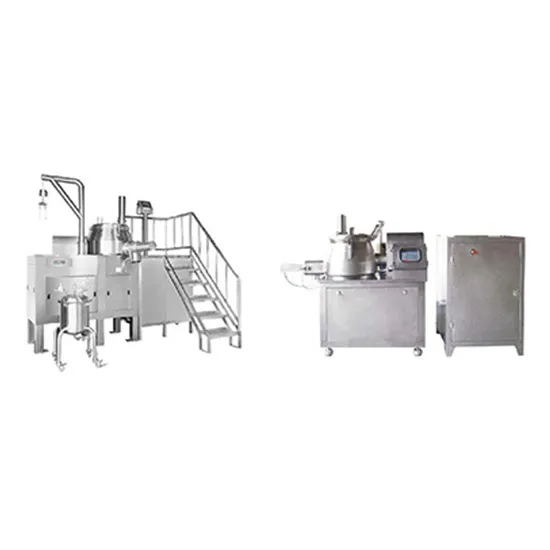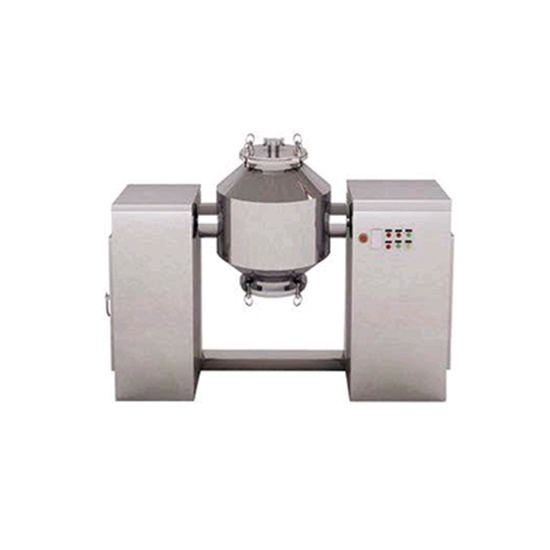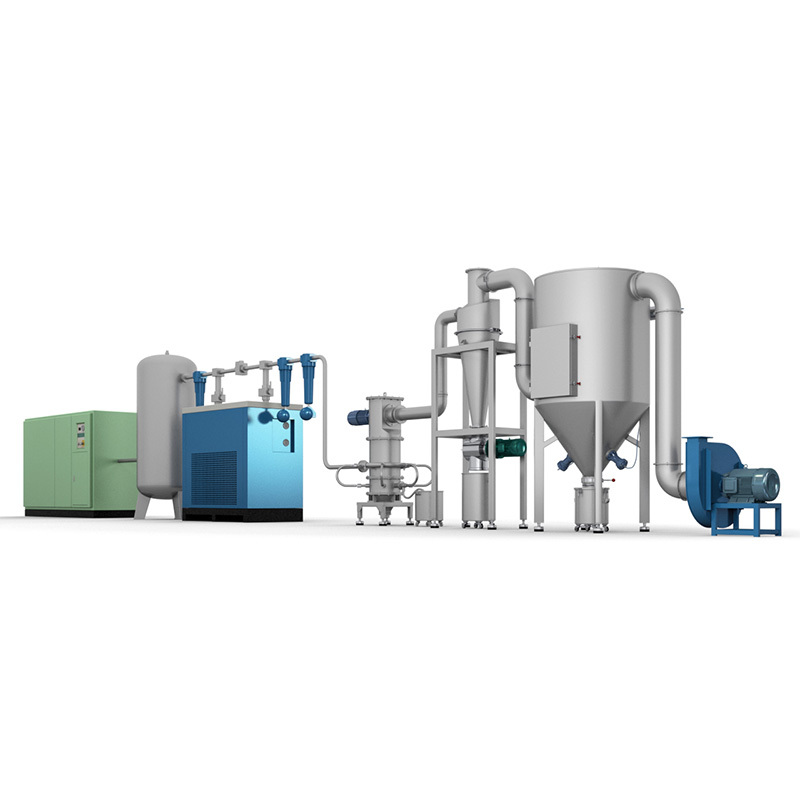NEWS
From Waste to Resource: Industrial Grinders in the Circular Economy
Sep 30,2023
Table of Contents:
1. Introduction: The Circular Economy and Waste Management
2. Understanding Industrial Grinders and Their Functionality
3. Industrial Grinders in Waste Reduction and Recycling
4. Repurposing Waste Materials with Industrial Grinders
5. The Role of Industrial Grinders in Resource Recovery
6. Environmental Advantages of Industrial Grinders in the Circular Economy
7. Challenges and Considerations in Implementing Industrial Grinders
8. FAQs (Frequently Asked Questions)
9. Conclusion
In an era where sustainability is crucial, the circular economy has gained significant attention as a model for responsible resource management. This approach aims to minimize waste and maximize resource utilization by promoting recycling, repurposing, and reusing materials. Industrial grinders play a vital role in this process by transforming waste into valuable resources, thereby contributing to a more sustainable and environmentally friendly manufacturing landscape.
Industrial grinders are powerful machines designed to break down various materials into smaller, more manageable pieces. They utilize blades, hammers, or other mechanisms to shred, grind, or pulverize different types of waste, such as wood, plastics, metals, and organic matter. These machines come in various sizes and configurations to accommodate different waste materials and processing requirements.
One of the primary applications of industrial grinders is waste reduction and recycling. By breaking down waste materials into smaller particles, grinders facilitate the recycling process by making it easier to separate and sort different components. For instance, in the recycling of electronic waste, industrial grinders can shred devices into smaller pieces, allowing for the extraction of valuable metals like gold, silver, and copper.
Industrial grinders also play a crucial role in repurposing waste materials. By grinding down materials like scrap wood, plastic bottles, or discarded textiles, grinders create a homogenous material that can be used as a feedstock for various applications. For example, wood waste can be ground into wood chips and used for composite boards, landscaping mulch, or biomass fuel.
Resource recovery is an essential aspect of the circular economy, and industrial grinders contribute significantly to this process. These machines enable the extraction of valuable resources from waste materials that would otherwise be discarded. For instance, industrial grinders can process construction and demolition waste, recovering metals, aggregates, and other valuable materials for reuse in new construction projects.
Industrial grinders offer several environmental advantages in the circular economy. Firstly, by reducing waste volume, grinders minimize the need for landfill space, mitigating the environmental impact of waste disposal. Additionally, the repurposing and recycling of materials through industrial grinders conserve natural resources and reduce the energy required for manufacturing virgin materials. This leads to a significant reduction in greenhouse gas emissions and environmental degradation.
While industrial grinders offer numerous benefits, their implementation may come with challenges. Some waste materials may require specialized grinders or pre-processing, resulting in additional costs and complexity. Additionally, ensuring the quality and safety of processed materials is crucial to maintain the integrity of the circular economy. Proper regulations, certifications, and quality control measures are necessary to address these challenges effectively.
Q: How do industrial grinders contribute to the circular economy?
A: Industrial grinders facilitate waste reduction, recycling, and resource recovery, making them essential tools in the circular economy.
Q: Can industrial grinders process different types of waste materials?
A: Yes, industrial grinders can handle various waste materials, including wood, plastics, metals, and organic matter.
Q: What are the environmental benefits of industrial grinders?
A: Industrial grinders help reduce waste volume, conserve natural resources, and minimize greenhouse gas emissions, promoting a more sustainable manufacturing process.
Q: Do industrial grinders require specialized maintenance?
A: Yes, regular maintenance is essential to ensure optimal performance and longevity of industrial grinders.
Q: Are there regulations governing the use of industrial grinders?
A: Depending on the jurisdiction, there may be regulations and certifications related to waste management and the use of industrial grinders. Compliance with these regulations is crucial for responsible waste processing.
Industrial grinders are indispensable tools in the circular economy, transforming waste into valuable resources while promoting sustainability and environmental responsibility. Their ability to reduce waste volume, facilitate recycling, and enable resource recovery makes them crucial in achieving a more efficient and eco-friendly manufacturing process. By embracing industrial grinders, industries can contribute to a more sustainable and prosperous future, where waste becomes a valuable resource.
1. Introduction: The Circular Economy and Waste Management
2. Understanding Industrial Grinders and Their Functionality
3. Industrial Grinders in Waste Reduction and Recycling
4. Repurposing Waste Materials with Industrial Grinders
5. The Role of Industrial Grinders in Resource Recovery
6. Environmental Advantages of Industrial Grinders in the Circular Economy
7. Challenges and Considerations in Implementing Industrial Grinders
8. FAQs (Frequently Asked Questions)
9. Conclusion
1. Introduction: The Circular Economy and Waste Management
In an era where sustainability is crucial, the circular economy has gained significant attention as a model for responsible resource management. This approach aims to minimize waste and maximize resource utilization by promoting recycling, repurposing, and reusing materials. Industrial grinders play a vital role in this process by transforming waste into valuable resources, thereby contributing to a more sustainable and environmentally friendly manufacturing landscape.
2. Understanding Industrial Grinders and Their Functionality
Industrial grinders are powerful machines designed to break down various materials into smaller, more manageable pieces. They utilize blades, hammers, or other mechanisms to shred, grind, or pulverize different types of waste, such as wood, plastics, metals, and organic matter. These machines come in various sizes and configurations to accommodate different waste materials and processing requirements.
3. Industrial Grinders in Waste Reduction and Recycling
One of the primary applications of industrial grinders is waste reduction and recycling. By breaking down waste materials into smaller particles, grinders facilitate the recycling process by making it easier to separate and sort different components. For instance, in the recycling of electronic waste, industrial grinders can shred devices into smaller pieces, allowing for the extraction of valuable metals like gold, silver, and copper.
4. Repurposing Waste Materials with Industrial Grinders
Industrial grinders also play a crucial role in repurposing waste materials. By grinding down materials like scrap wood, plastic bottles, or discarded textiles, grinders create a homogenous material that can be used as a feedstock for various applications. For example, wood waste can be ground into wood chips and used for composite boards, landscaping mulch, or biomass fuel.
5. The Role of Industrial Grinders in Resource Recovery
Resource recovery is an essential aspect of the circular economy, and industrial grinders contribute significantly to this process. These machines enable the extraction of valuable resources from waste materials that would otherwise be discarded. For instance, industrial grinders can process construction and demolition waste, recovering metals, aggregates, and other valuable materials for reuse in new construction projects.
6. Environmental Advantages of Industrial Grinders in the Circular Economy
Industrial grinders offer several environmental advantages in the circular economy. Firstly, by reducing waste volume, grinders minimize the need for landfill space, mitigating the environmental impact of waste disposal. Additionally, the repurposing and recycling of materials through industrial grinders conserve natural resources and reduce the energy required for manufacturing virgin materials. This leads to a significant reduction in greenhouse gas emissions and environmental degradation.
7. Challenges and Considerations in Implementing Industrial Grinders
While industrial grinders offer numerous benefits, their implementation may come with challenges. Some waste materials may require specialized grinders or pre-processing, resulting in additional costs and complexity. Additionally, ensuring the quality and safety of processed materials is crucial to maintain the integrity of the circular economy. Proper regulations, certifications, and quality control measures are necessary to address these challenges effectively.
8. FAQs (Frequently Asked Questions)
Q: How do industrial grinders contribute to the circular economy?
A: Industrial grinders facilitate waste reduction, recycling, and resource recovery, making them essential tools in the circular economy.
Q: Can industrial grinders process different types of waste materials?
A: Yes, industrial grinders can handle various waste materials, including wood, plastics, metals, and organic matter.
Q: What are the environmental benefits of industrial grinders?
A: Industrial grinders help reduce waste volume, conserve natural resources, and minimize greenhouse gas emissions, promoting a more sustainable manufacturing process.
Q: Do industrial grinders require specialized maintenance?
A: Yes, regular maintenance is essential to ensure optimal performance and longevity of industrial grinders.
Q: Are there regulations governing the use of industrial grinders?
A: Depending on the jurisdiction, there may be regulations and certifications related to waste management and the use of industrial grinders. Compliance with these regulations is crucial for responsible waste processing.
9. Conclusion
Industrial grinders are indispensable tools in the circular economy, transforming waste into valuable resources while promoting sustainability and environmental responsibility. Their ability to reduce waste volume, facilitate recycling, and enable resource recovery makes them crucial in achieving a more efficient and eco-friendly manufacturing process. By embracing industrial grinders, industries can contribute to a more sustainable and prosperous future, where waste becomes a valuable resource.
More News










